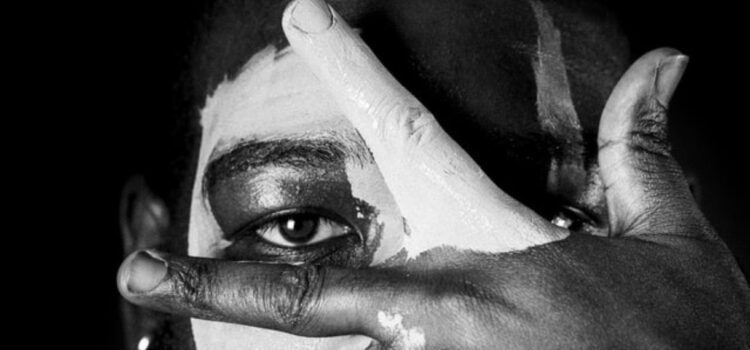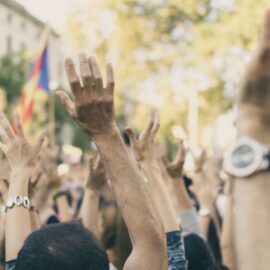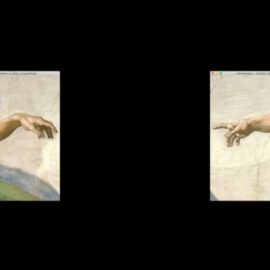

This article is an excerpt from the Shortform book guide to "The 1619 Project" by Nikole Hannah-Jones. Shortform has the world's best summaries and analyses of books you should be reading.
Like this article? Sign up for a free trial here .
Is American law inherently racist? What does racism in law have to do with slavery?
There are a number of racist laws in America—laws that do not just favor white people but are also unjust to Black People. This is largely due to persisting attitudes and beliefs from the era of slavery.
In this article, we will discuss a few American laws and practices that fail to provide liberty and justice for Black Americans.
Rape Laws
For Black women, laws regarding rape rarely result in justice due to stereotypes developed during slavery. A study conducted in Kansas City and Philadelphia found that prosecutors are 4.5 times more likely to file charges in rapes when the victims are white than Black. And, if the victim is Black, the accused are more likely to be acquitted or receive a light sentence if convicted.
(Shortform note: Recent research reiterates the authors’ claim that prosecutors are much more likely to file rape charges when the victim is white than Black. And experts add that this fact both discourages Black women from reporting rape and puts them at a disproportionate risk of sexual assault. They elaborate that 25% of Black girls are sexually assaulted before turning 18, and for every Black female that reports a rape, at least 15 go unreported. On top of this, Black women are the most likely of all races to be raped in their lifetime.)
The authors argue that these injustices are due to persisting stereotypes from slave times that make Black women and girls out to be hypersexual, or “Jezebels.” These stereotypes developed to justify and encourage the rape of Black women by their white enslavers—the belief claimed that Black women and little girls were promiscuous and always consenting, and therefore couldn’t be “raped.” The stereotype was publicly endorsed by newspapers so that American enslavers would produce more slaves—the children of these rapes became the property of their mothers’ rapists.
Self-Defense Laws
The authors argue that because of stereotypes and cultural mindsets that persist from slavery, the right to self-defense is leniently granted to white people while often being withheld from Black people.
When a Black person commits a violent act against a white person in defense of their life, they’re much more likely to be persecuted and denied their right to self-defense than if they were white. Similarly, white people have a much higher chance of being acquitted for a violent act against a Black person by claiming self-defense, whether or not the act was justified. The authors point to the case of Breonna Taylor to highlight this point, who was in bed when she was shot six times and killed by police officers during a raid on her Louisville, Kentucky home. The officers involved were acquitted because they were considered to be acting in self-defense.
The authors claim that the reason for these injustices is what they call white fear—the white cultural mindset that Black people are inherently dangerous and uncivil. This belief originated during and after slavery because whites feared that Black people would violently retaliate against the injustices inflicted upon them. Because of white fear, Blacks were intensely monitored and harshly punished through “slave codes.”
(Shortform note: In Biased, Jennifer Eberhardt adds that racial bias causes people to view Black people’s movements as more threatening by default. She elaborates that a pioneering study in 1976 found that when college students saw a white stranger shove a black stranger in a staged scenario, 17% classified the behavior as “violent,” but when a Black stranger shoved a white stranger, 75% reported the behavior to be violent. The students, by default, classified the Black person’s actions as more violent than the same actions performed by a white person—this is an example of what the authors refer to as white fear.)
“Slave codes” were a set of rules that prevented Black people from gaining any power or equality. For example, these codes prevented Black people from testifying in court or carrying weapons but allowed enslavers to freely kill any of their slaves as they deemed necessary. When slavery was abolished, “Black Codes” were enforced in the south to patrol and monitor Blacks, mirroring the laws of slave codes. Soon after came Jim Crow—a set of racist laws in America that segregated Black people, enforced white supremacy, and established Blacks as second-class citizens.
(Shortform note: Experts second that Jim Crow laws were specifically designed to maintain the effects of slave codes and Black Codes—to enforce white supremacy and “keep Black people in their place.” For example, under Jim Crow, a Black man couldn’t reach out for a handshake to a white man because it implied equality. Punishment for this could be as severe as death; however, it was extremely uncommon for whites to be punished for murdering a Black person, as long as they could cite some way in which the Black person crossed the line of the social hierarchy—in these situations, murder was considered “corrective justice.”)
So while Black Americans have been “free and equal” on paper since Jim Crow was abolished in 1964, the white fear that developed these forms of oppression remains ingrained into American culture and the justice system today.
Punishment Laws
The authors assert that in the justice system, Black individuals are punished more severely than white individuals who’ve committed the same offenses. The authors argue that these racist decisions stem from white fear and the legal and judicial precedents that remain from slavery.
For example, Black prisoners convicted of killings are more likely to be sentenced to death than whites facing the same conviction—a study from the 1980s found that in Georgia, Black prisoners were 22 times more likely to be sentenced to death.

———End of Preview———
Like what you just read? Read the rest of the world's best book summary and analysis of Nikole Hannah-Jones's "The 1619 Project" at Shortform .
Here's what you'll find in our full The 1619 Project summary :
- A reframing of American history with the institution of slavery at its core
- How democracy as we know it today was largely built by enslaved Blacks
- The racist institutions that persist today that originated from slavery






